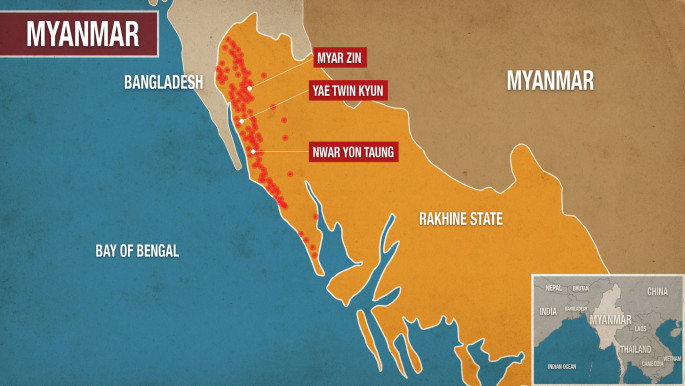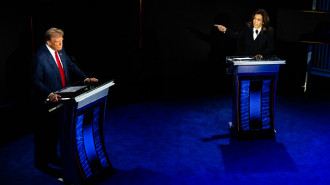Bangladesh hands refugee list to Myanmar to begin repatriation
A Bangladesh Cabinet minister gave a list of 8,032 Rohingya refugees to his Myanmar counterpart to begin repatriations of the Muslim minority under a November agreement between the two countries.
Bangladesh Home Minister Asaduzzaman Khan said on Friday the list contained the members of 1,673 Rohingya families. He did not explain how the names had been chosen.
About 700,000 Rohingya Muslims have fled army-led violence in Buddhist-majority Myanmar since last August and are living in refugee camps in Bangladesh. The two countries originally agreed to begin the repatriations last month, but they were delayed by concerns among aid workers and Rohingya that they would be forced to return and face unsafe conditions in Myanmar.
Hundreds of Rohingya were reportedly killed in the violence, and many houses and villages burned to the ground.
UN refugee chief Filippo Grandi told the Security Council on Tuesday that conditions aren't right for Rohingya to voluntarily return because Myanmar hasn't addressed their exclusion and denial of rights. Grandi also said Rohingya are still fleeing Myanmar and thousands more are expected to leave.
Khan said he presented the list to Myanmar Home Minister Lt. Gen. Kyaw Swe, who is visiting Bangladesh's capital, Dhaka, to discuss the repatriations and other border issues.
"The Myanmar side cordially accepted the list, and they sought our help to make it happen," Khan told reporters. Kyaw Swe did not speak to the reporters.
Khan said officials in Myanmar would choose 6,500 people
next Tuesday to be sent back in an initial phase. He would not say exactly when the repatriation would start.
"They said they will take them all in three phases," he said. "No specific timeframe has been decided yet when they will start returning.
Khan said Bangladesh expressed its desire for safe and secure conditions and a proper infrastructure for the refugees' return. Impoverished Bangladesh has been overwhelmed by the refugee onslaught and is eager for them to return to Myanmar.
Aid agencies have stressed the need for a safe and voluntary return for repatriation to be considered legitimate.
On Thursday, Kyaw Swe told Bangladesh President Abdul Hamid that Myanmar is ready to take back displaced people, presidential spokesman Joynal Abedin said Friday.
Abedin also quoted Kyaw Swe as saying that Myanmar will implement the recommendations of a commission led by former UN Secretary-General Kofi Annan to improve conditions in Rakhine state, where the refugees previously lived.
The recent violence erupted after an underground insurgent group, the Arakan Rohingya Salvation Army, attacked security outposts in Rakhine in late August. The military and Buddhist mobs launched retaliatory attacks on Rohingya that were termed "clearance operations."
Myanmar's security forces have been accused of atrocities against the Rohingya, including killing, rape and arson. The United Nations and the US have described the army crackdown as "ethnic cleansing."
The Rohingya have long been treated as outsiders in Myanmar, even though their families have lived in the country for generations. Nearly all have been denied citizenship since 1982, effectively rendering them stateless. They are denied freedom of movement and other basic rights.
![Palestinians mourned the victims of an Israeli strike on Deir al-Balah [Getty]](/sites/default/files/styles/image_684x385/public/2024-11/GettyImages-2182362043.jpg?h=199d8c1f&itok=xSHZFbmc)


![The law could be enforced against teachers without prior notice [Getty]](/sites/default/files/styles/image_684x385/public/2178740715.jpeg?h=a5f2f23a&itok=hnqrCS4x)
 Follow the Middle East's top stories in English at The New Arab on Google News
Follow the Middle East's top stories in English at The New Arab on Google News

![Voters in Michigan [Getty]](/sites/default/files/styles/image_330x185/public/2182490468.jpeg?h=a5f2f23a&itok=XMi_sWGX)
